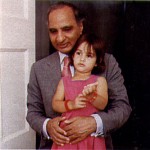
Articles About Ved Mehta

Relative Values: Ved Mehta and His Daughter, Sage
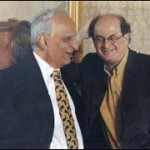
‘There Was Salman, Shouting Away’
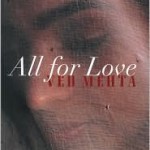
Steamy Sights for Poor Eyes
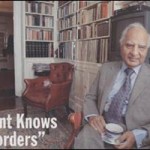
Talent Knows No Borders
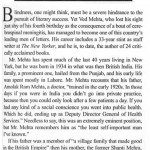
Artist in Residence: Ved Mehta
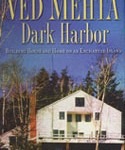
An Island Gift
Deprivation often makes a writer.
In His Own Words
I was born, in 1934, into a Hindu family in India. When I was a couple of months short of my fourth birthday, I lost my sight as the result of an attack of cerebrospinal meningitis. In India, one of the poorest countries the world has ever known, the lot of the blind was to beg with a walking stick in one hand and an alms bowl in the other. Hindus consider blindness a punishment for sins committed in a previous incarnation. But my father, a doctor, tried to fight the superstition and give me an education, like his other children, so that I could become, as he used to say, a self-supporting citizen of the world. Before I turned five, he sent me to what he had heard was the country’s best school for the blind, in Bombay, 1,300 miles away from our home, in the Punjab. It proved to be, like the score or so of other such schools in the country, an orphanage cum asylum. I spent a total of three years there, sick a good part of the time, and then was returned home because the school had nothing more to teach me. For years, I had no school to go to. All along, my father was trying to get me across to the West, where the blind received a proper education, but no school there would have me, because the authorities said I was too young.
When I was 13, India gained independence, but at the expense of a partition of the country that left a million people dead and 11 million homeless. We were among the refugees who escaped from newly created Pakistan with the clothes on our backs. I feared that now I was permanently stuck in India, with no chance of getting a proper education. Then I had an opportunity to study for a few months at a newly established institute for soldiers blinded in World War II. There I learned, among other things, to do touch typing, and afterward I wrote often a barrage of letters to schools for the blind in England and the United States, telling them of my plight. Still no school would have me, it seemed, the authorities now saying that my preparation was sketchy and that, in any case, my going abroad at such an early age would lead to social maladjustment. Then one school, the Arkansas School for the Blind, accepted me. My father raised the necessary money, and I flew there alone when I was 15. I was finally on the road to a formal education. In due course, with the help of many scholarships, I earned a B.A. from Pomona College, in California, a B.A. from Balliol College, Oxford, and an M.A. from Harvard. While I was still a student, I started writing for The New Yorker.
When I was 23, I published my first book, an autobiography. It was written out of a feeling that I could partly alleviate a life of deprivation by writing about it. Since the age of 26, I have been writing for my livelihood, and in 1984 my 15th book was published. Three of my books deal with blindness directly. Two others touch on the subject.